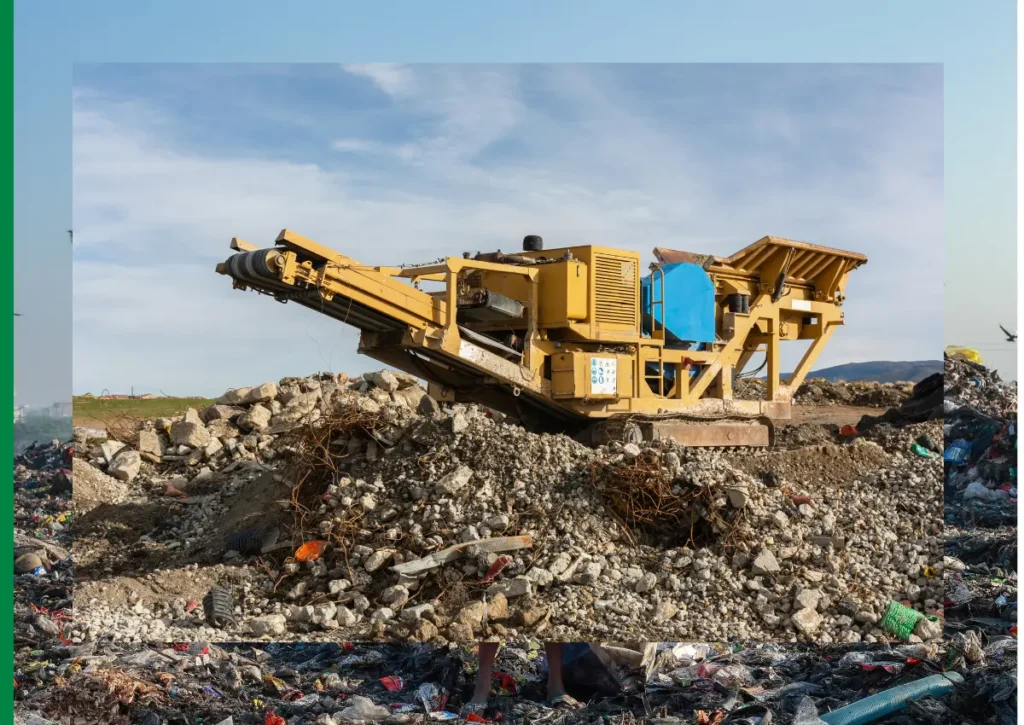India produces about 62 million tons of waste every year, creating big problems for the environment and opening up many business prospects. Because India has become the most populous nation, finding solutions for waste is a challenge. Innovative Indian enterprises are now making trash valuable, helping to build a thriving circular economy, and it benefits both the environment and their profit goals.
The idea of a circular economy means turning waste into useful resources. Indian businesses are showing that recycling plastic and using agricultural leftovers can boost profits while protecting the environment.

In this insight, you are going to know about the top companies that turn the waste into businesses.
Ecokari — Handling the Plastic Problem
Waste consisting of multi-layered plastic packaging is very difficult to deal with today. These materials, which are widely found in packaging and consumer goods, often cannot be recycled with traditional techniques. A huge amount of these materials ends up polluting our oceans and land because very few recycling facilities can accept them.
Ecokari is now a leader in this area because it has found a way to change non-recyclable waste into useful products. They develop bags, wallets and other tools by safely using the upcycling process on multi-layered plastic packets, which results in bags with strong, waterproof qualities.
Ecokari stands out because safety is a leading concern during every upcycling action. Because their process does not put out dangerous chemicals, they can help people and make use of more material. The system fills the gap in India’s waste management structure by making buying without using disposable packaging easier for many people.
The company’s work highlights an important perspective on plastic consumption: while reducing plastic use remains crucial, recognizing plastic’s value as a durable, reusable material helps us make the most of what’s already in circulation. Ecokari’s model demonstrates that thoughtful upcycling can extend the lifecycle of problematic materials while reducing environmental impact.
GrowDiesel’s : Waste-to-Energy Innovation
Experts have credibly criticized the biofuel industry for taking away mudity from food and creating problems with deforestation. In fact, GrowDiesel belongs to a new class of biofuel makers that avoid these issues by processing waste as their main feedstock.
The innovative system that GrowDiesel uses turns industrial organic matter into fuel by conducting anaerobic digestion. Not only does the process provide valuable biofuels, but it also keeps the methane gas the company generates from making its way into the atmosphere as a greenhouse gas.
There are many environmental pros to using this method. Because GrowDiesel manages organic waste, it reduces methane emissions that could add to climate change. At the same time, the biofuels they produce help India move away from fossil fuels, encouraging both independence in energy and better care of the environment.
Circular economy ideas are clearly seen through the waste-to-energy model. What a company discards as trash can be used by another, creating economic advantages as well as helping the environment. With India becoming more urbanized and industrial, assessing its increasing amount of waste becomes more important and this is where GrowDiesel steps in.
BlueCat — From Fields to Pages
For a long time, the paper industry has used a lot of virgin wood, which has hurt forests and the environment. The company shows it is possible to create environmentally friendly paper that is also high in quality.
The constant use of different kinds of raw materials makes BlueCat Paper noticeably different. They are skilled at changing everything from bagasse, cotton scraps, hemp, linen waste and elephant dung into useful paper. It is important that they can easily adapt to changing agricultural conditions and the changing supply of waste.
Being woman-owned makes the company’s environmental mission more meaningful. Despite the many challenges women face when building businesses, BlueCat Paper shows that focusing on sustainability provides opportunities for female leadership and helps the environment.
The framework covers several sustainability issues all at once. Air polluting waste from farming is instead recycled and integrated into high-value products. It decreases the environmental burden and gives farmers a new way to earn more money, helping businesses and the community.
WearEqual’s : A Circular Fashion Model
The fashion industry is one of the most polluting sectors in the world and textile waste is causing increasing concerns for the environment. The brand WearEqual takes on this challenge directly by producing intimate wear from leftover organic cotton, proving that anything close to our skin can be sustainable.
The company is catering to a major and often overlooked area—intimate wear. Such high requirements for hygiene and comfort add to the achievement when upcycled materials are used. Using bio-washing, WearEqual’s recycled cotton reaches high standards for your well-being and comfort while still helping the environment.
Even though organic cotton does not use as many chemicals as regular cotton, it still takes up more land for the same yield. That’s why making sure organic cotton remains in use is especially important for sustainability. WearEqual has seen this issue and created a complete circular model that goes past their first production phase.
Partnering with India Waste shows the company’s dedication to full circularity. Once a customer no longer needs their WearEqual product, they can go back to us to be processed into the filling for jackets and more. Because of a closed-loop system, resources are used for as long as possible and waste is reduced.
Economic and Environmental Benefits
These organizations are not just focused on their own success—they are helping make India’s economy more sustainable and circular. Their efforts benefit companies by reducing waste disposal costs and saving on materials. At the same time, they create jobs in waste collection and recycling.
These initiatives, from a circular economy point of view, solve various environmental issues at once. They decrease the use of natural resources, lessen the amount of waste sent to landfills and in many cases are cleaner options than ordinary items. A country handling both rapid economic expansion and preservation of the environment needs the expanded benefits of this approach.
The social consequences matter just as much. Woman-owned businesses in particular are developing fresh opportunities for work and business growth while also caring for the environment. It proves that following environmentally friendly practices can help create social justice and economic growth.
Final thoughts
Indian businesses are quickly changing the way the circular economy operates by turning challenges to the environment into new opportunities. We see that waste management doesn’t have to stop at recycling. It can be used to create benefits for people and our planet.
In this way, companies are making it easier for materials to keep circulating in the economy. By studying how they succeeded, entrepreneurs and industries can create their own strategies linking gains with a safe environment. Many of these actions, such as recycling firm waste into construction supplies and plastic to make new products, highlight that being green and useful are not incompatible.
The nation’s change toward a circular economy can make a big difference in managing waste, creating job opportunities, strengthening local economies and securing the supply chain. With more companies embracing circular thinking and people preferring sustainability, the move from the current model to a new one will become faster.
FAQs
Which is the richest waste management company in India?
Eco Recycling ltd.
Urban enviro w
Who is India’s first e-waste recycler?
E–Parisaraa Pvt. Ltd.
How to Turn Waste into Wealth?
Entrepreneurs recycle materials, produce energy from waste, create eco-friendly apps, and use solar or wind power—turning trash and natural resources into profit and sustainability.
Which company is the largest shareholder of waste management?
The Vanguard Group, Inc., owns around 9.3% of the company’s shares. As a major player in the investment world, Vanguard’s stake highlights growing investor interest in sustainable and waste-focused businesses.
Can small businesses benefit from circular economy practices?
Absolutely! Small businesses can reduce costs by reusing materials, build brand trust through sustainability, and tap into the growing eco-conscious consumer base.



